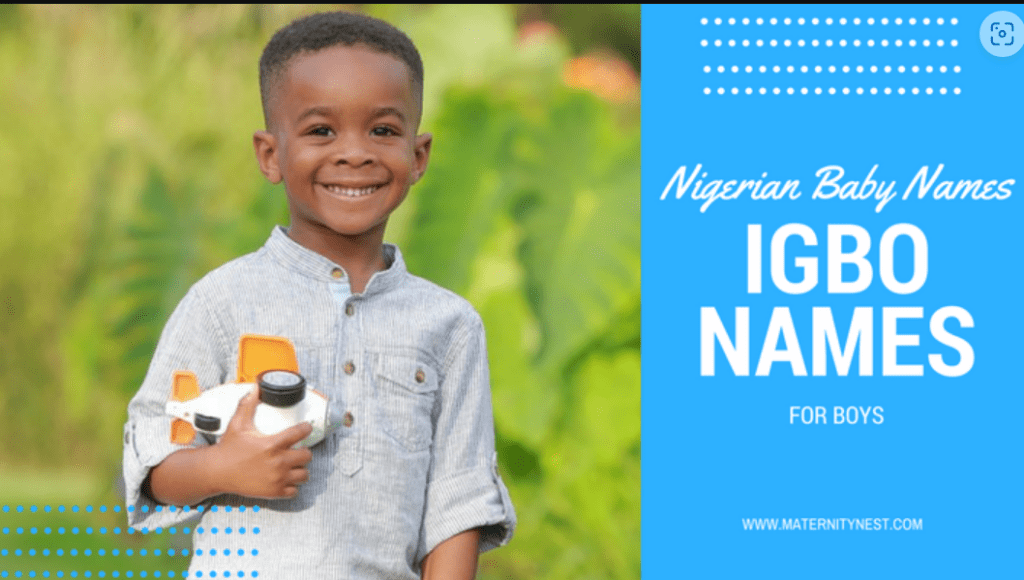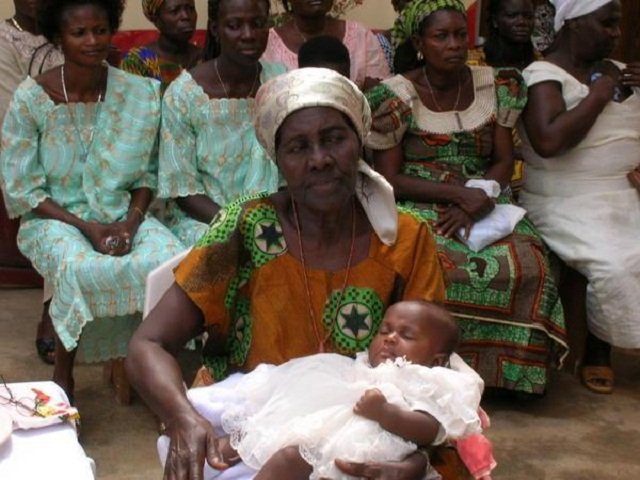In Igbo society, naming is a profound ceremony intricately tied to the circumstances of a child’s birth. These names bear significant sociocultural importance, sustaining traditional values and marking individual identity. However, contemporary Igbo society is witnessing a decline in the understanding of the significance of traditional names, as the allure of Western practices eclipses the rich cultural values passed down by ancestors. This paper aims to explore the meaning and implications of traditional Igbo names, their sociocultural values, and the reasons behind their naming practices. By embracing traditional names, “ndi Igbo” can revive and safeguard their cultural heritage. This qualitative research employs observations, interviews, historical literature, and case studies to gather data, with the findings benefiting the present Igbo population.
Introduction
Naming is a universal practice, providing identification for everything on earth, be it living beings or inanimate objects. In Igbo culture, names play crucial roles that convey meanings and communicate messages. Igbo people strongly believe that their language can be upheld through the art of naming, and names are seen as symbolic representations of various aspects of a person’s life.
They view names as symbols, as these names reveal information about the person, such as their beliefs, family background, achievements, and even the specific region of Igbo land they come from. In one of Chinua Achebe’s books, he made a notable statement: “If you want to know how life has treated an Igbo man, a good place to look is the names his children bear” (Achebe; 1975). In Igbo society, children sometimes receive two or three names, followed by their surname, usually their father’s name. However, one name among the three is predominant, setting them apart from others, even within their own family. It’s important to understand that every name given to a child in Igbo land is carefully chosen due to the supernatural belief that traditional names influence the life of the bearer.
The choice of an Igbo name reflects not only individual identity but also the broader cultural and societal contexts.

Naming Ceremony and Factors Influencing Names
In Igbo culture, names carry significant cultural weight and are chosen based on specific circumstances. The naming ceremony, known as “iba aha” or “izu ato” in the Igbo calendar, is a distinctive event set on the 28th of the month. During this ceremony, the chosen name is loudly proclaimed, signaling the entrance of a new member into the family. This practice is rooted in the belief that ancestral spirits are present during this momentous occasion. Additionally, various factors shape the naming process, including:
- Festivals: The celebration occurring during a child’s birth influences the name. For instance, the New Yam Festival (Osuji) or specific market days (Eke, Orie, Afor, Nkwo) can inspire names like Okeke, Okafor, Mgbaorie, and Nwankwo.
- Deities and Natural Objects: Names can be derived from local deities or natural elements, such as stars, the sun, and the bush. Examples include Nwaogwugwu (child of a deity), Offiafuluagu (man of the blacksmith god), and Anyanwu-ututu (morning sun).
- Family Circumstances: The circumstances surrounding a family’s situation during a child’s birth can influence names. Hardships may lead to names like Obianuju (born in time of abundance), Obiageliaku (a child brings opportunities), and Ononikpoaku (doors of opportunities open).

Categories of Igbo Names
Igbo names can be categorized into various themes, each carrying unique significance:
- Family History
According to Udeze and Onyekelu (2015), these names represent the pages, experiences, and chapters of a family’s life story. They work like a diary, recording the daily progress, growth, or decline of an individual. Igbo names often encapsulate family history, experiences, and progress. Examples include Onwubiko (Death please), Iruka (Tomorrow will be greater), and Ozoemna (May it not happen again). - Self-Satisfying names
Parents often celebrate their achievements by giving their child a name that reflects their success. Names like Onyejekwe (Who would have believed) and Chinagorom (God has vindicated me) exemplify this category. - Poetic Names
Female newborns are often bestowed with poetic names, celebrating their beauty. Nkpulumma (Seed of beauty), Mmasinachi (Beauty is from God), Akwaugo (Eagle’s egg), and Orjiugo (Eagle’s Kolanut) are poetic examples. - Philosophical Names
Expressing emotions, tolerance, morality, or sympathy is achieved through philosophical names such as Ejikemeuwa (Life is not by force), Ejimmadu (He who has good people surrounding him is blessed), and Igwebuike (Kindred are strength). - Adulation Names
Long-awaited prayers answered may result in names like Chukwuebuka (My God is big), Chimdiebube (My God is great), and Chimdimma (My God is good). - Lamentable Names
Grief or repeated failures can lead to lamentable names such as Anenechukwu (Looking unto God), Emelife (Did I commit any crime), and Menomonie (Console me).
Distinct Gender-Sensitive Names
Igbo society assigns separate names for male and female children, although shared names also exist. Male names include Ikechukwu (God’s power), Ezeugo (King of Eagle), Obinna (Father’s heart), and Obiora (Heart of the people). Female names like Nnenna (Mother’s father), Nnenne (Mother’s mother), Nkechinyere (What God has given me), and Nneka (Mother is supreme) highlight the gender sensitivity of Igbo names.
Preserving Cultural Heritage
Also, Igbo traditional names are more than mere labels; they encapsulate family blessings and narrate stories of heritage. These names often spark recognition among distant family members, even in foreign lands. Traditional Igbo names embody the vastness and depth of “ndi Igbo” values. Mystic theology underscores the potent power of traditional names, which resonate from birth throughout an individual’s life. To ensure the perpetuity of these values, it’s essential for Igbo parents to place traditional names on their children’s birth certificates and embrace their cultural heritage.
References
- Arthur, A. (2016). “Africa’s Naming Traditions: Nine Ways to Name Your Child.” Link.
- Ogwudile, C.E.C. (2019). “The Socio-Cultural and Linguistic Implications of Igbo Names: A Case Study of Ezeagu North Local Government Area of Enugu State, Nigeria.” Odezuligbo Journal: Vol. 3, No. 1, 2019, pp. 152-154.
- Udeze, C. V., & Onyekelu, A. C. (2015). “The Socio-Cultural Implications of Igbo Personal Names.” International Journal of Igbo Scholar’s Forum: Vol. 2, No. 1, pp. 141-156.

